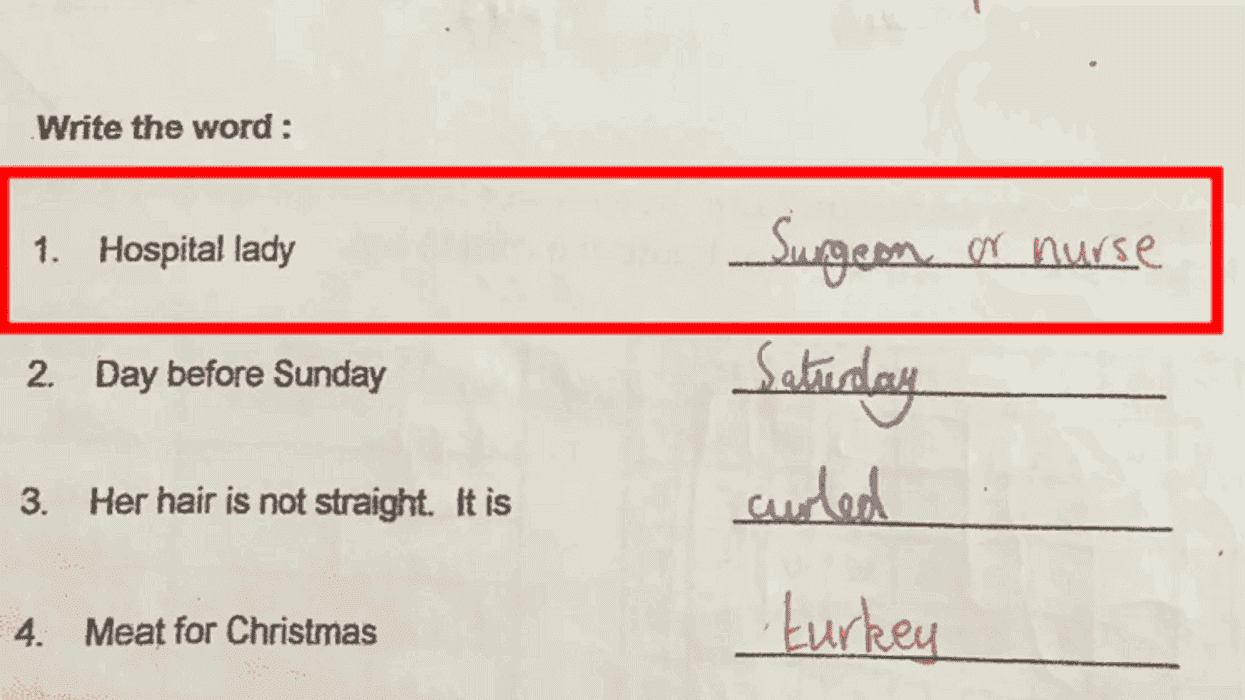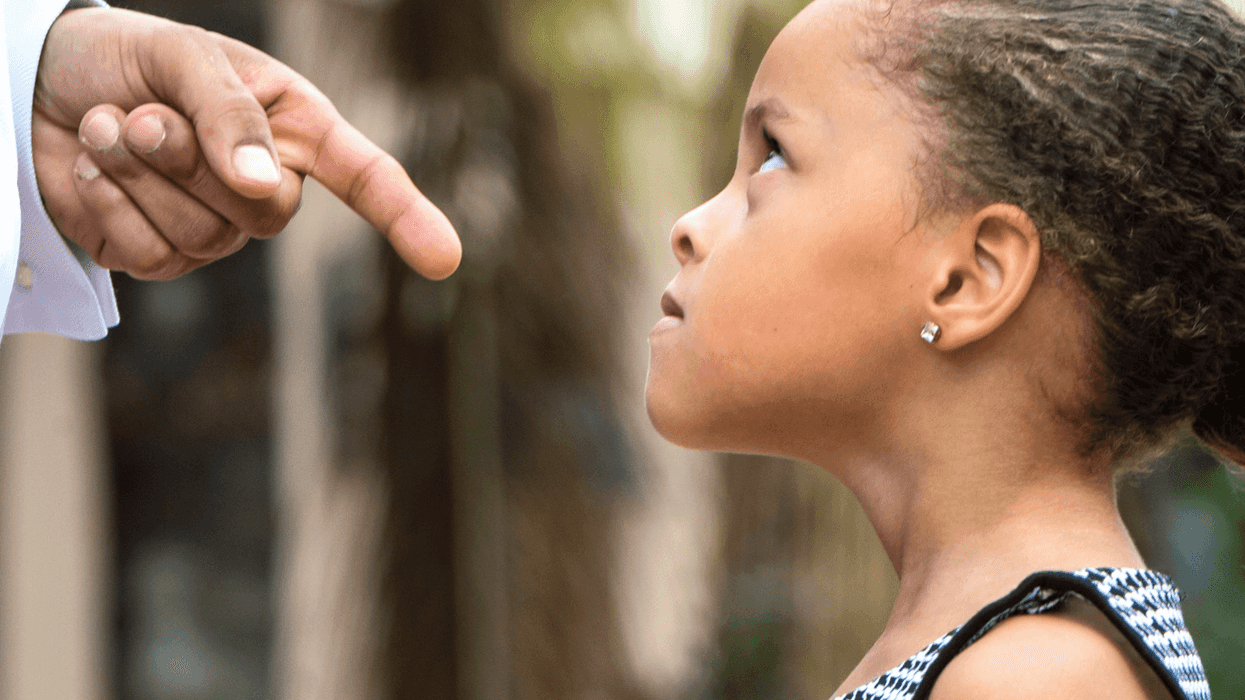When Kanye West speaks up, we listen. When he falls down, we sit up and take notice. While the last week has been a troubling experience for Yeezy, it might actually be a good thing for the millions of people out there struggling with the same internal demons West is likely facing right now.
His latest antics—which included a public meltdown and the cancellation of his concert tour and resulted in a brief hospitalization last week—is a sobering reminder that not only is mental illness no joke, it doesn’t discriminate.
While the mainstream media struggles to come to terms with how to frame the story of a clearly troubled man caught in the limelight, GOOD seeks a more empathetic framework for understanding West and his strange behavior. How can we better understand West in the context of his role as a husband and father, and as a guy we might not know as well as we think?
The friends who have known West through thick and thin seem to be on the same page. After news spread about West’s tour cancellation and his hospitalization, the hip-hop artist’s friends and collaborators sent messages of support on Twitter:
“He’s obviously going thru a tough time,” wrote Terrence Henderson, the rap executive known as Punch. “Maybe things u don’t know about. When it hit the fan are you still a fan?”
“Been knowing the brother upwards of 13 years. Mental healing is a serious thing, no matter what. Stay strong Kanye West,” producer and record executive 9th Wonder added.
But to get to a place of healing, we must first dig in and find out what’s motivating West and his strange behavior. What’s the likely diagnosis and prognosis for someone exhibiting these types of symptoms and behaviors? Two experts in mental health weigh in.
Is West likely suffering from a mental illness?
According to mental health expert and coach Julie A. Fast, who has not treated West, the answer is yes. In trying to understand West’s behavior, Fast points out four main psychiatric disorder categories that health care professionals use to diagnose people who show specific symptoms: mood disorders (depression and bipolar disorder); psychotic disorders (schizophrenia and other thought disorders involving psychosis); anxiety disorders (generalized anxiety, social anxiety, phobias, post-traumatic stress disorder); and personality disorders (borderline, narcissism, sociopathic, psychopathic, histrionic, hypochondriac).
“What he shows is far more about bipolar mania than narcissism,” said Fast. “His current behaviors have little to do with personality disorders in my opinion. He is having symptoms of bipolar disorder.”
She said that West’s baseline is that of a creative artist, a respected person who gets a lot of work done, who cares a great deal for his wife and kids, and who was very close to his late mother. “But I would say his ego is very fragile and he deals with a lot of sadness and worry about life, like all of us.”
Bipolar disorder is a mood disorder which is episodic, said Fast, meaning that a person can swing from mania to depression easily. “This means the symptoms come and go and the person’s true baseline personality comes back,” she said. “I always say that bipolar disorder is a cloak that covers us when we are sick and goes away when we are well.”
West will likely continue to go through phases, said Fast. He will be quite stable—able to pull off large projects without a problem and keep himself out of the news—then will likely suddenly go off the rails again doing something outrageous and controversial. It’s critical that someone suffering from symptoms like those West has been exhibiting seek treatment, she said. “Something has to be done to stop this roller coaster, or it will get worse.”
Is he more likely to suffer because he’s a famous artist?
Is there validity to the cliché of the "mad" or "tortured" artist? Yes, said Dr. Rachel Kitson, a practicing psychologist based in Charlotte, North Carolina, who has studied West’s behavior and his similarities to Donald Trump, but who has not treated the star directly.
“If we think about the type of brain that sees the world in a unique way and is able to construct art and contemplate beauty and meaning in ways the rest of us cannot, it suggests a different type of neuronal wiring in the brain,” she said. “That intensity, sensitivity, and drive to create might make the world both a more beautiful and painful place.”
Still, she said, the numbers don't suggest that artists are necessarily more likely to struggle with mental illness in particular. “We know lots of artists have struggled with mental health issues, or can speculate some have potentially used art as a way to cope and function quite adaptively,” Kitson added.
But whether you’re a superstar or super broke, it’s all the same in the darkness of the night. “Bipolar disorder doesn’t care if you’re Joe Smith or Kanye West,” said Fast. “It treats everyone the same. People with these three disorders act the same all over the world, no matter what race, age, or income they may have.”
And while Kitson feels she can rule out chronic thought disorders or schizophrenia based on West’s high level of functioning, she said she doesn’t have enough information to attribute his actions to mental illness or psychosis. “I think Kanye has fallen peril to the fame monster,” she said. “We've seen a lot of celebrities struggle under the intense glare of the limelight, which sometimes highlights any ‘cracks’ in the psyche.”
She added that West’s 2014 marriage to Kim Kardashian only added to the level of attention West received, and perhaps exacerbated the stress associated with it. “When people have a predisposition towards mental illness and are put under extreme stress, it tends to exacerbate symptoms,” said Kitson.
What does this all mean for Kim and the children?
Dr. Kitson said that West’s better half, wife Kim Kardashian West likely serves as the yin to his yang. “She seems pretty calm-headed and serene; he seems passionate and bombastic. They both have seemingly carved out names for themselves in the likeness of their own design,” she said. Kitson added that even if West embodies the suffering artist motif, it doesn’t make it any less difficult to see the husband and father of your young children suffer.
“Right now, Kim is simply a wife who is very, very scared,” added Fast. “When someone you love, who is the father of your children, gets out of control like this, it’s nothing like having someone get sick physically.”
She said it’s only possible to talk to “the illness,” and not the person.
Fast also noted that Kardashian West’s recent harrowing robbery experience was likely “way too big a trigger for him to handle,” and could have been a key factor in what she calls his recent manic episode.
Kardashian West (and partners coping with similar situations) will play an important role in West’s ongoing recovery, according to Fast. Working with doctors and therapists, West needs to first learn the symptoms of mania, depression, anxiety, and psychosis, write them down, and come up with a plan to help her partner stay stable.
But as shocking and scary as the ups and downs of mental illness can be, there is hope, especially if there can be greater understanding.
“Could the media and audience be more kind, sensitive, and supportive? Certainly,” said Dr. Kitson. “The bigger question is how will Kanye learn from this experience and curb his behavior to take care of himself and be a good father to his children.”

















 Oral Wegovy pills were approved by the Food and Drug Administration in December 2025 and became available for purchase in the U.S. in January 2026.
Oral Wegovy pills were approved by the Food and Drug Administration in December 2025 and became available for purchase in the U.S. in January 2026. Despite the effectiveness of GLP-1 drugs for weight loss, there is still no replacement for healthy lifestyle patterns, including regular exercise.
Despite the effectiveness of GLP-1 drugs for weight loss, there is still no replacement for healthy lifestyle patterns, including regular exercise.


 What foods would you pick without diet culture telling you what to do?
What foods would you pick without diet culture telling you what to do?  Flexibility can help you adapt to – and enjoy – different food situations.
Flexibility can help you adapt to – and enjoy – different food situations.
 Anxious young woman in the rain.Photo credit
Anxious young woman in the rain.Photo credit  Woman takes notes.Photo credit
Woman takes notes.Photo credit 
 Revenge can feel easier than forgiveness, which often brings sadness or anxiety.
Revenge can feel easier than forgiveness, which often brings sadness or anxiety. 
 In the past two years, two malaria vaccines have become available for babies starting at 5 months of age.
In the past two years, two malaria vaccines have become available for babies starting at 5 months of age. By exploiting vulnerabilities in the malaria parasite’s defense system, researchers hope to develop a treatment that blocks the parasite from entering cells.
By exploiting vulnerabilities in the malaria parasite’s defense system, researchers hope to develop a treatment that blocks the parasite from entering cells. Created with
Created with